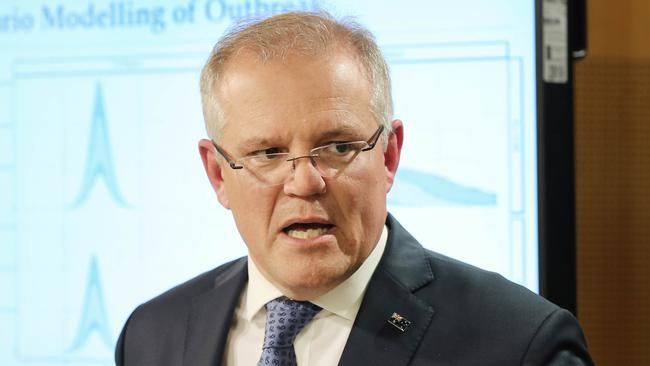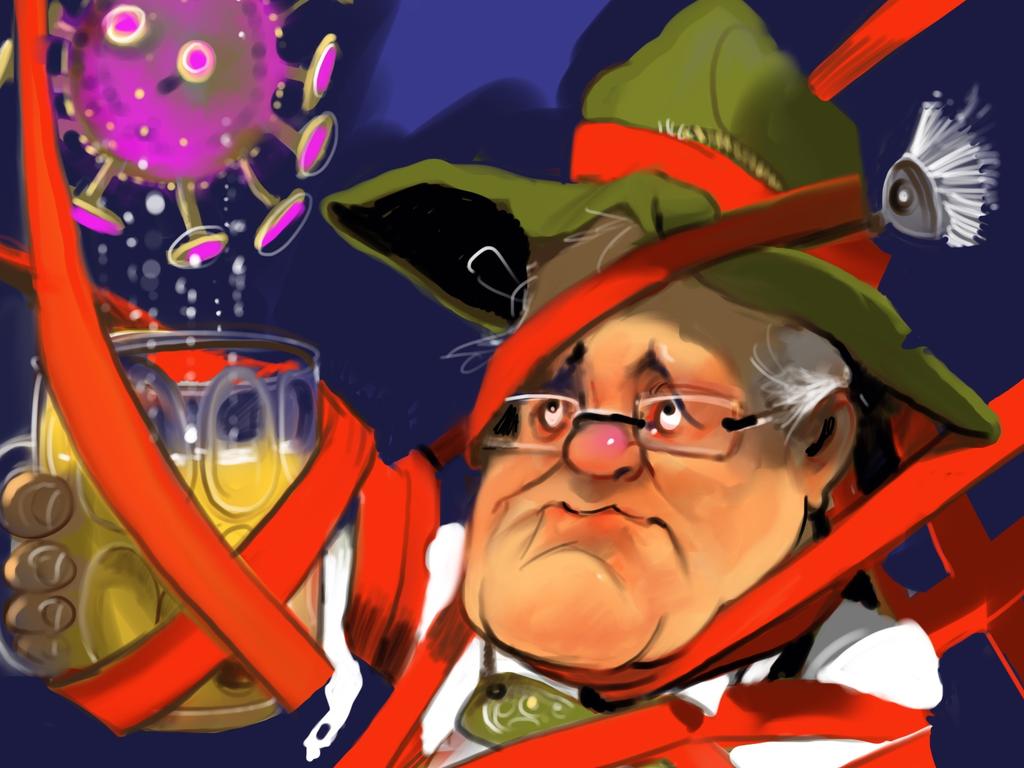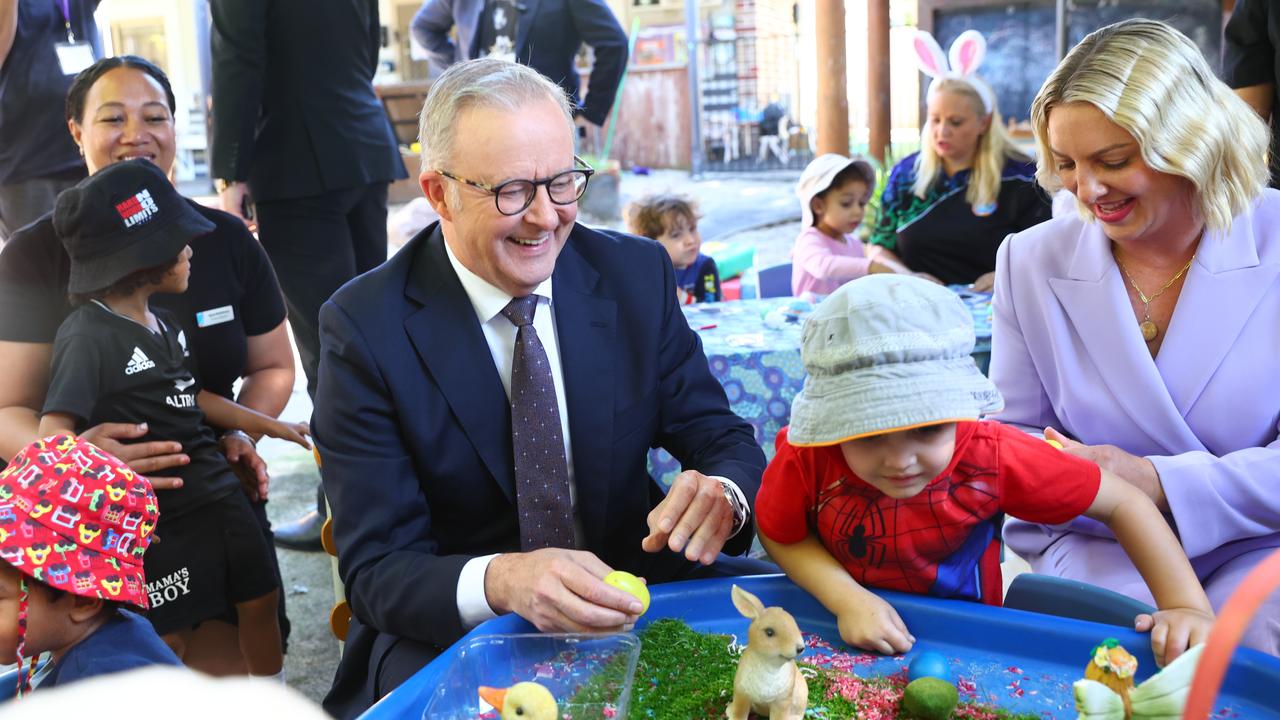Operation Covid: save our jobs and business
A government package to protect businesses will be targeted at saving jobs and propping up aviation, tourism and hospitality.

A government rescue package to protect tens of thousands of businesses facing collapse will be targeted at saving jobs and propping up the aviation, tourism and hospitality sectors, which have been devastated by the COVID-19 economic fallout.
As Scott Morrison and Josh Frydenberg moved to shield at-risk industries, the government urgently pulled together a $715m airline assistance package to support Qantas and Virgin Australia, which are being pushed to the brink of collapse.
The Treasurer, who is holding rolling meetings through cabinet’s expenditure review committee, will announce the major business package within days of sweeping new national emergency health response measures to be announced on Wednesday.
Council of Small Business Organisations Australia chief executive Peter Strong warned that tens of thousands of businesses would collapse due to the fallout from the virus and 500,000 people could be forced out of work.
The Australian can reveal that the nation’s big banks and three major energy retailers have come under pressure to provide immediate relief for small businesses, amid warnings from Finance Minister Mathias Cormann that businesses will close and Australians will lose their jobs.
The banks are being pushed to provide support on mortgages and small business loans, while the government is calling for big business to use its cash reserves and balance sheets to help keep the wheels of the economy turning.
With unions and Labor attacking the government over its economic response to COVID-19, Attorney-General Christian Porter rebuffed their calls for casual workers to receive paid leave if they were unfit for work due to the coronavirus.
Mr Porter insisted support for affected workers should be provided through the welfare system and welcomed commitments from major private sector employers and the Australian Public Service Commission to support paid leave for casuals hit by the virus.
As the government prepares to roll out a significant rescue package, in addition to its $17.6bn stimulus package, new Council of Small Business Organisations Australia modelling predicts a record number of bankruptcies, mass business closures and job losses over the next two years.
COSBOA is also warning unemployment could hit more than 10 per cent over the next 24 months.
The NSW government on Tuesday unveiled a $2.3bn stimulus package, which includes $700m to fight the coronavirus and $1.6bn towards job protection and support for small businesses.
The Queensland government ramped up its COVID-19 economic response, offering loans of up to $250,000 interest-free for up to 12 months and extending its deferral of payroll tax to all businesses.
Qantas chief executive Alan Joyce declared the coronavirus crisis the “single biggest shock” aviation had experienced as he announced a 90 per cent cut to international capacity and a 60 per cent reduction in domestic flying.
The government’s airline package, to be backdated to February 1, will see airlines reimbursed for government-imposed charges, such as Airservices Australia fees, fuel excise and regional aviation security charges, until April 30. An initial $159m will be paid immediately in recognition of the unprecedented challenges facing the industry due to travel restrictions put in place to limit the spread of the coronavirus.
With small businesses facing closure and more Australians facing bill shock as they shift to working from home, Snowy Hydro guaranteed power supply to its one million customers and pledged not to foreclose on unpaid accounts in response to the COVID-19 crisis.
Ahead of a COAG meeting with his state and territory counterparts on Friday, Energy Minister Angus Taylor urged large electricity and gas retailers to “do the right thing” and support customers.
AGL, Origin Energy and EnergyAustralia have not made new commitments to escalate their COVID-19 responses to support customers, choosing a case-by-case basis and support through existing hardship payment plans.
“I’ve been in regular contact with the energy companies and they understand they have a responsibility to customers impacted by COVID-19,” Mr Taylor said. “They need to do the right thing, and I believe they will.”
The national cabinet, consisting of Scott Morrison and state and territory leaders, met on Tuesday night to finalise responses to support remote communities and restrictions on indoor gatherings and aged-care visitations.
Snowy Hydro chief executive Paul Broad said there were already calls from business customers concerned about their ability to pay bills. He said the country was facing the most serious downturn and the company would act in the national interest to help small businesses keep the lights on.
“We will not foreclose on anyone … particularly small business,” Mr Broad said.
He said the company had ensured it could maintain supply with two independent operation centres that effectively provided two workforces quarantined from each other.
Mr Broad said he believed that businesses with strong balance sheets were obliged to act in the national interest. West Australian Premier Mark McGowan on Monday announced all household fees and charges in the state, including electricity, water and vehicle registration, would be frozen through a COVID-19 economic relief package.
Attention is now turning to the banking sector, with senior cabinet ministers pushing for a liquidity injection into small business by guaranteeing loans.
The Commonwealth Bank has moved to defer repayments on business loans for three months and waiving early redraw fees on business term deposit accounts. However, the Australian Banking Association has resisted calling for an industry-wide response, saying customers should contact their bank to assess the relief on offer.
AGL said it had committed to pay small business suppliers within 14 days, down from 30 days, but had not announced any additional COVID-19 measures to support customers struggling to pay their power bills.
An Origin Energy spokesman said the company was reviewing how it could support Australians in response to COVID-19 and was encouraging small business customers to contact their customer advocacy team to move on to hardship payment plans. An EnergyAustralia spokesman said it was monitoring the coronavirus situation and taking steps to “prioritise the safety of our people and support for our customers’’.
Additional reporting: Robyn Ironside, Greg Brown







To join the conversation, please log in. Don't have an account? Register
Join the conversation, you are commenting as Logout